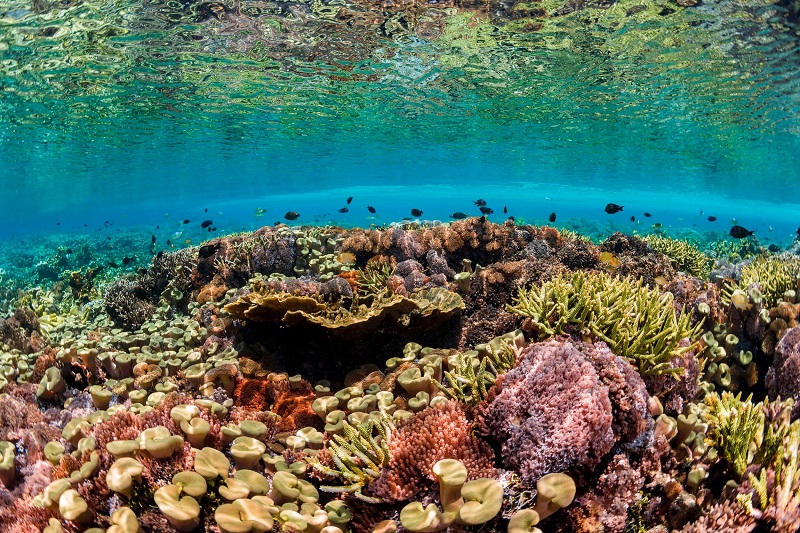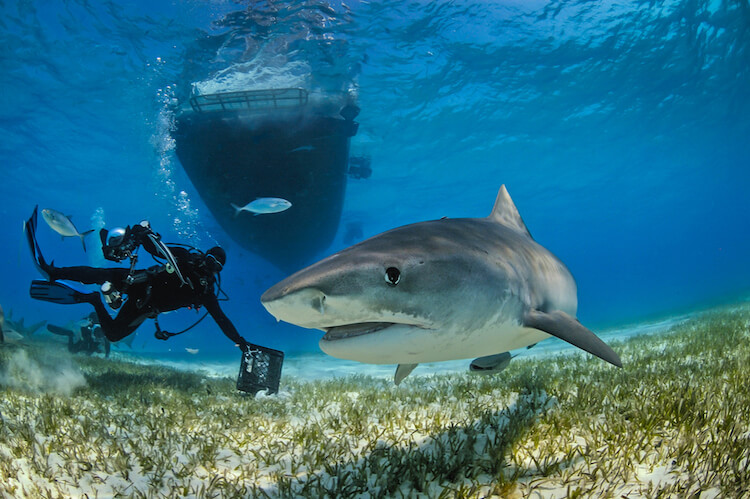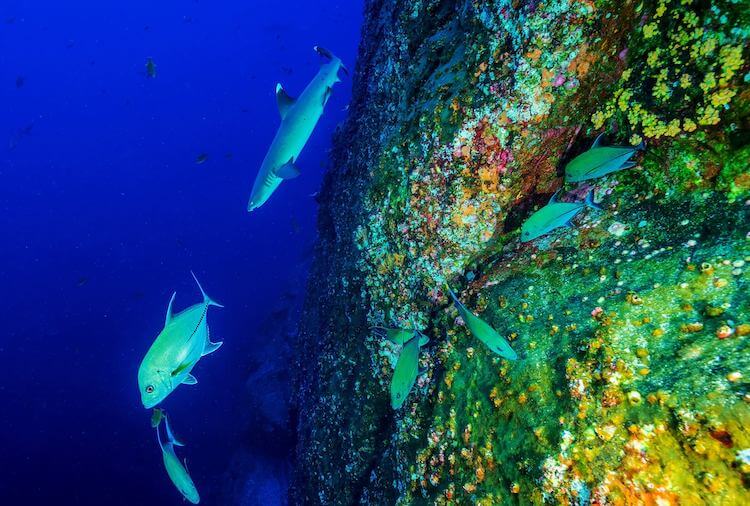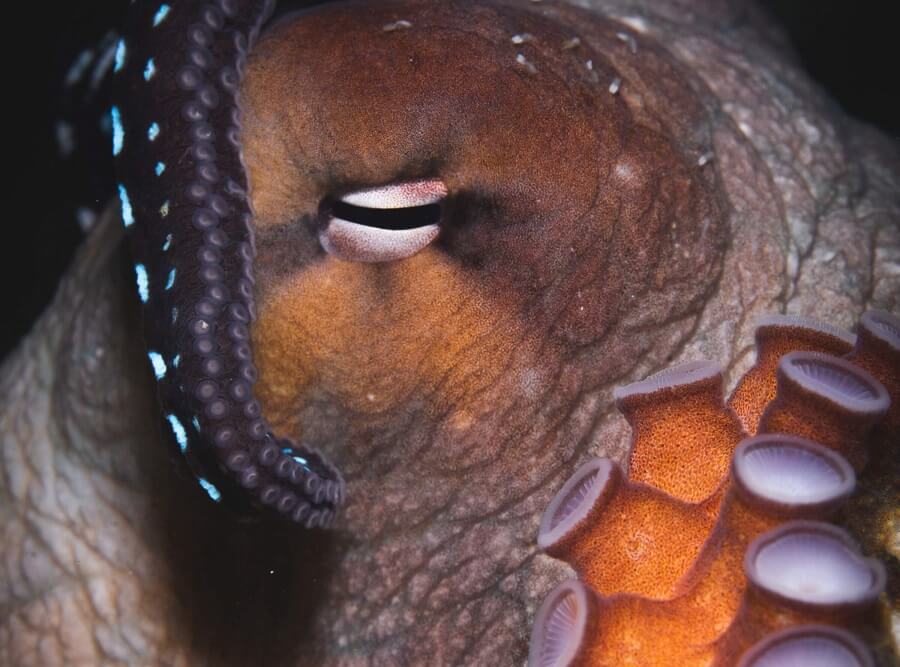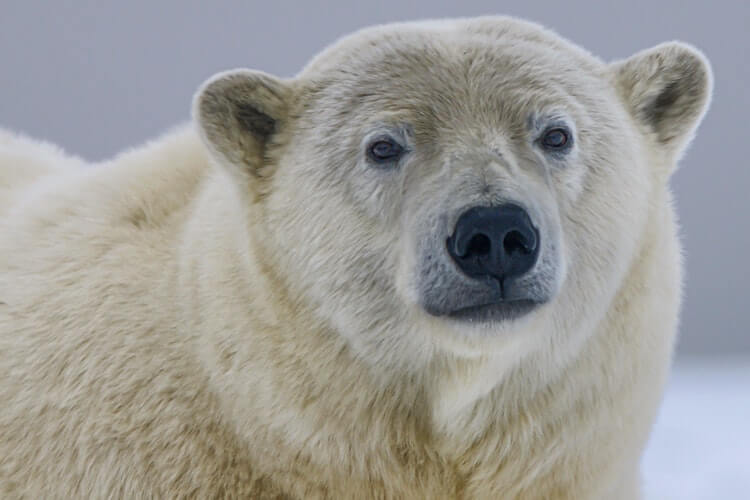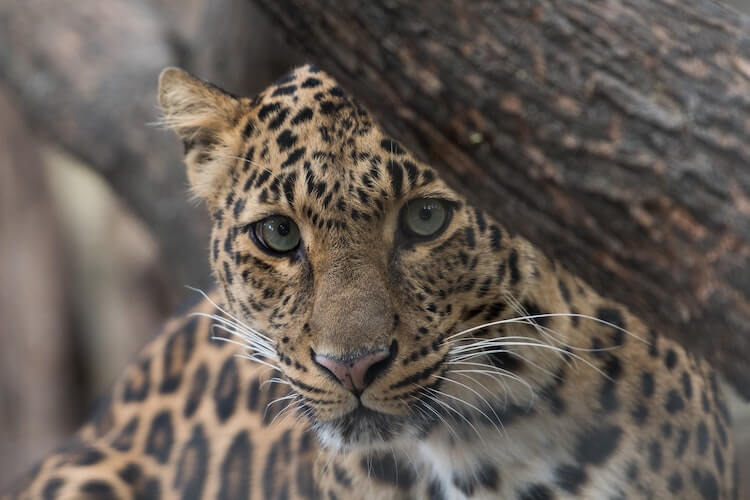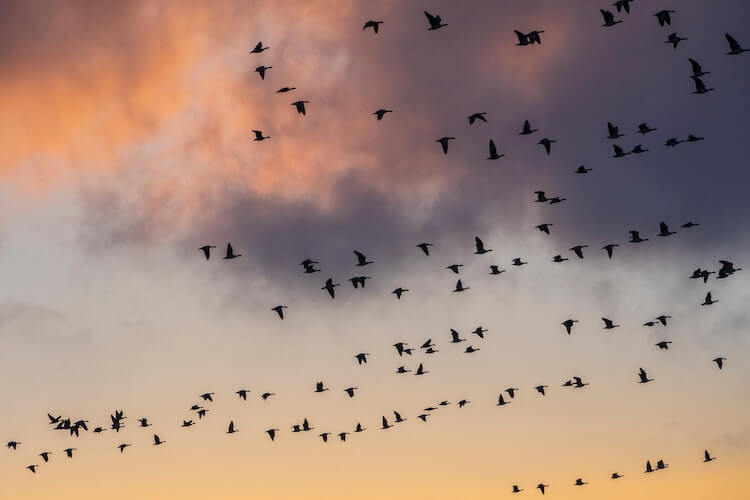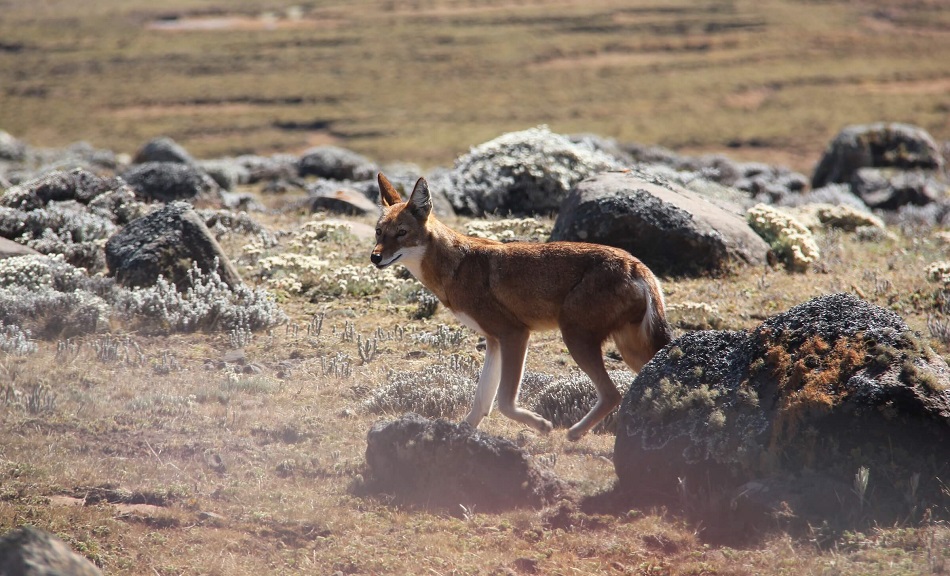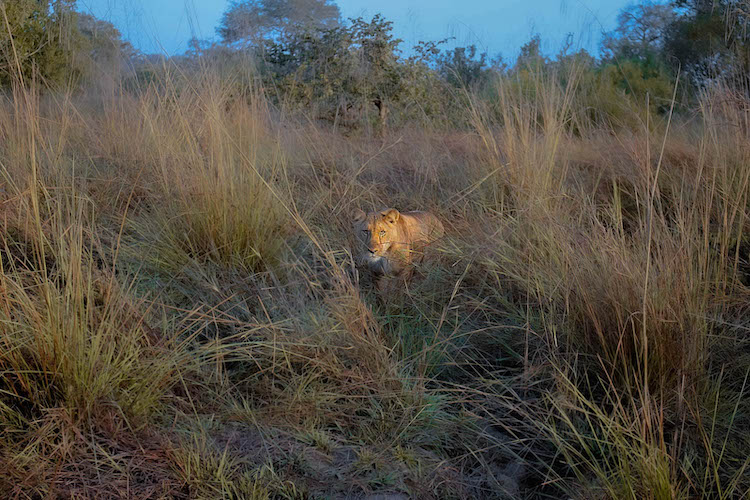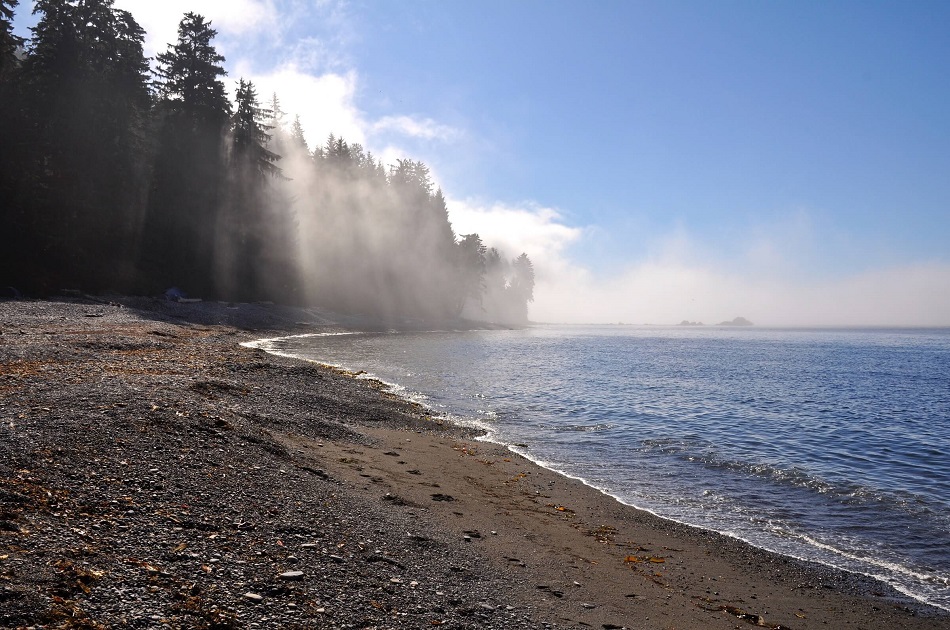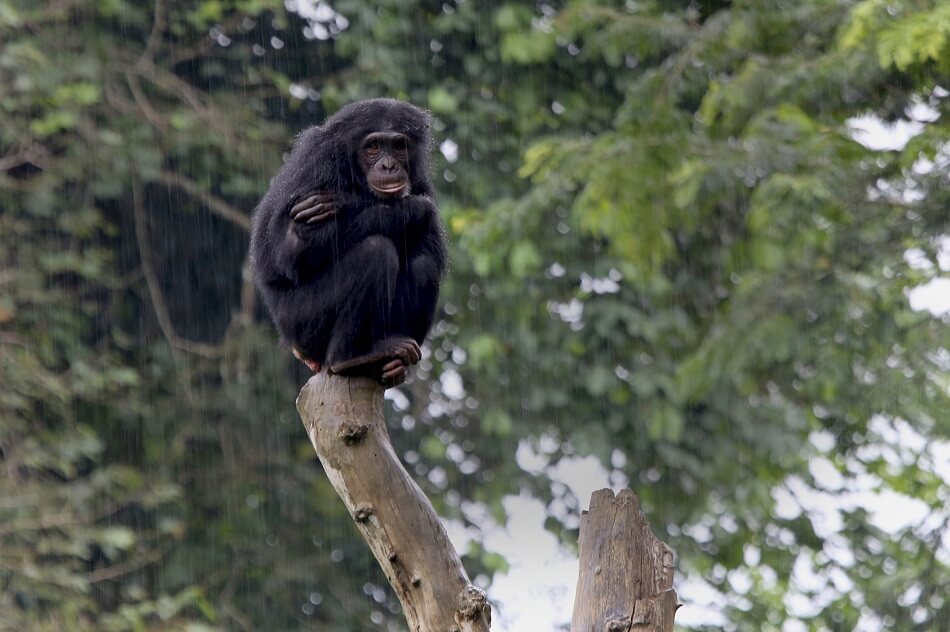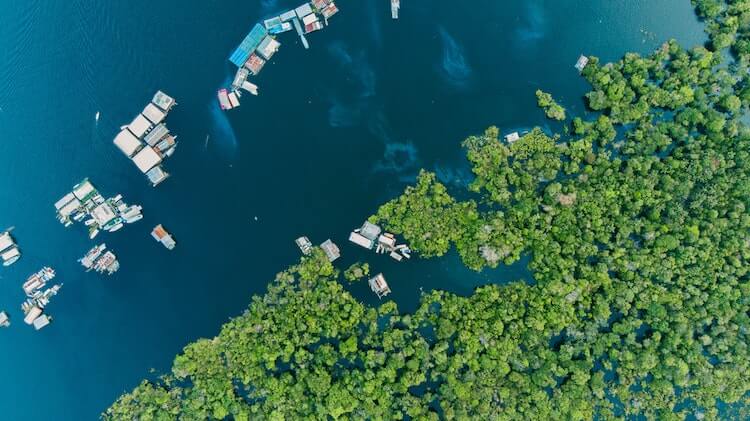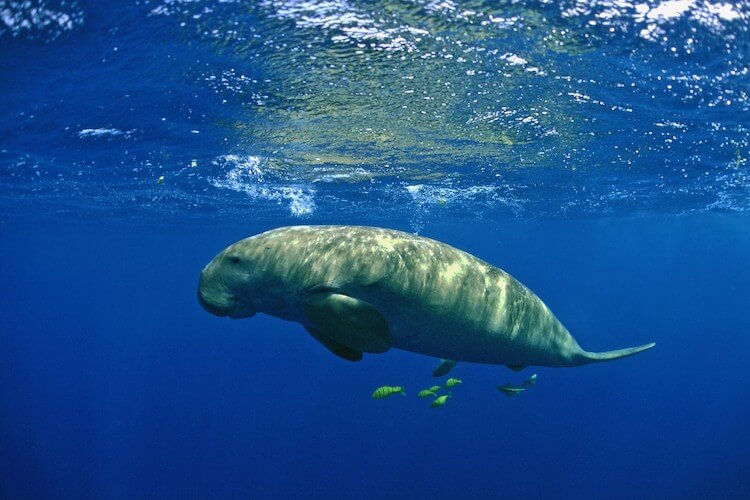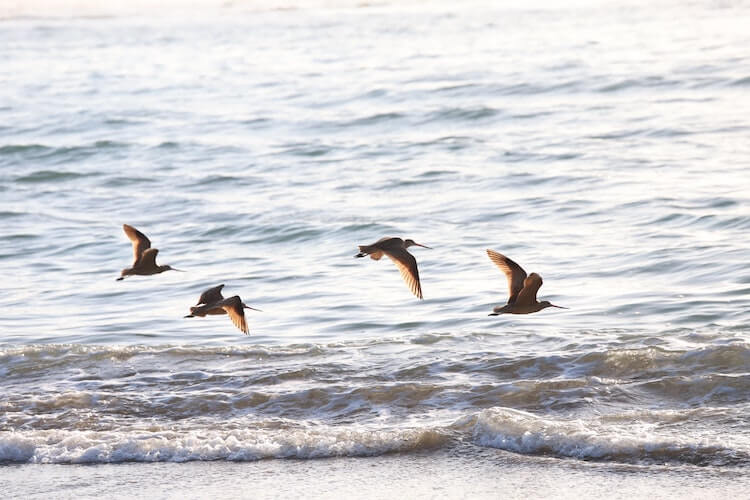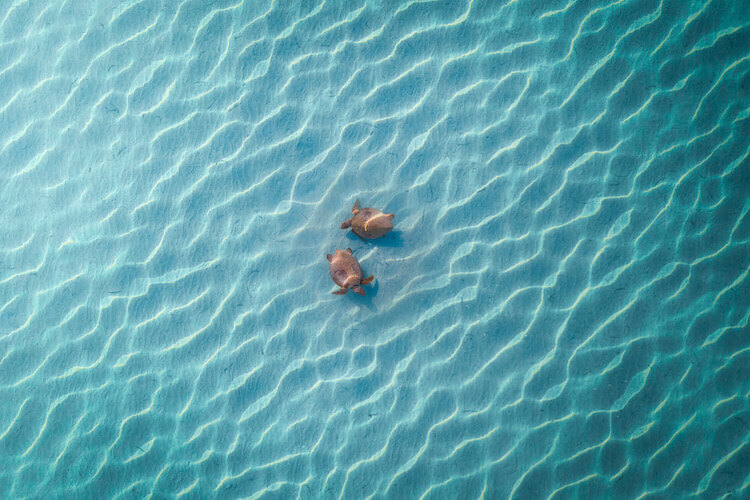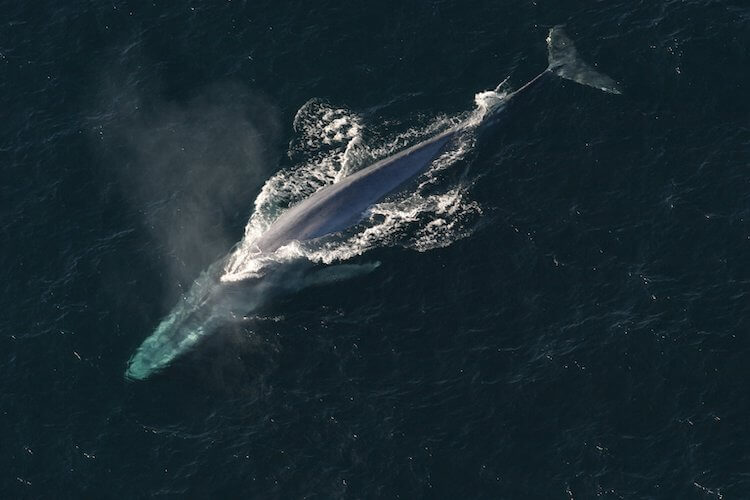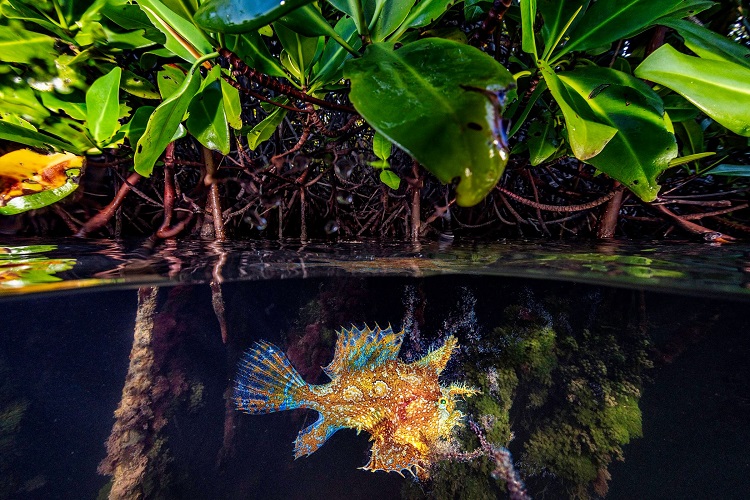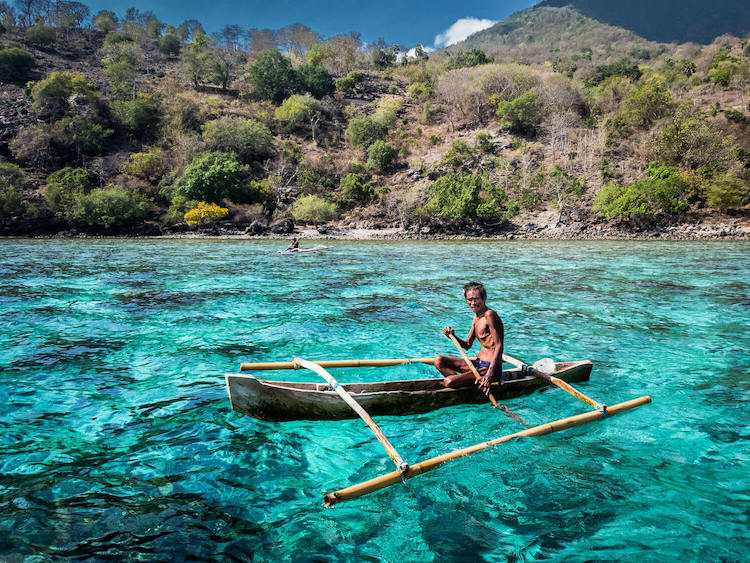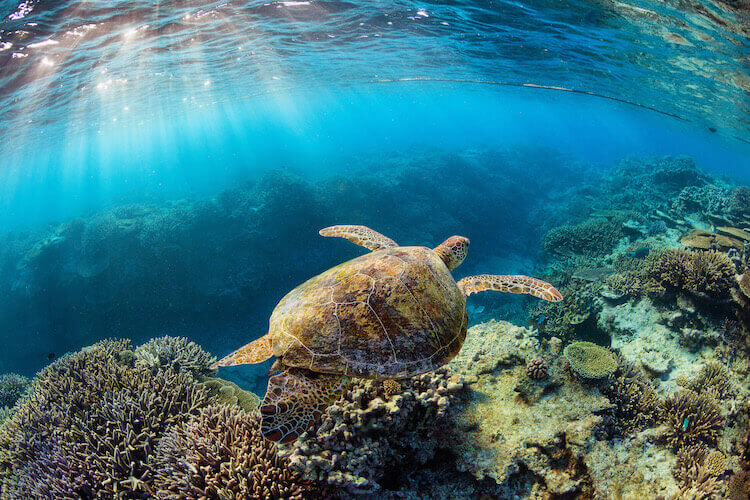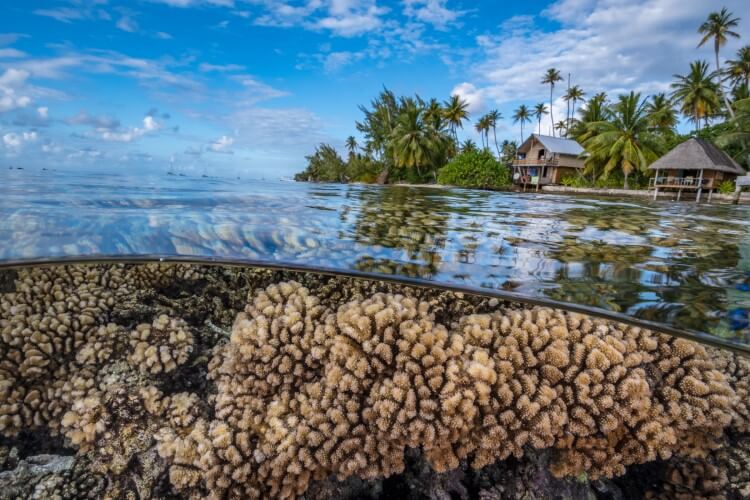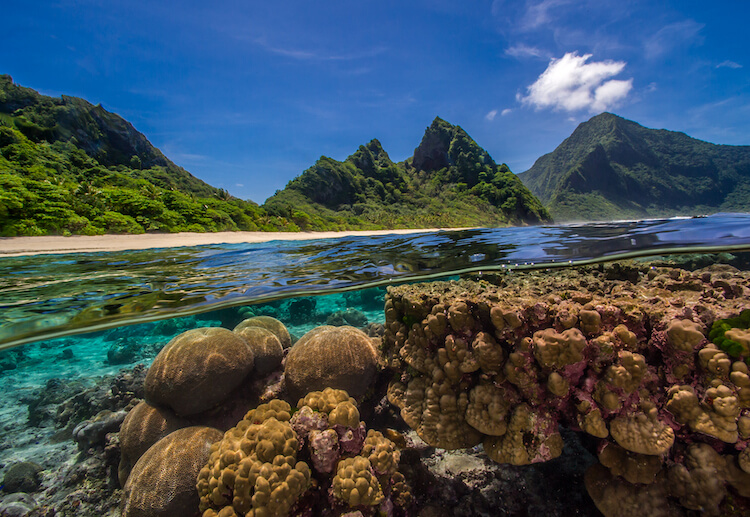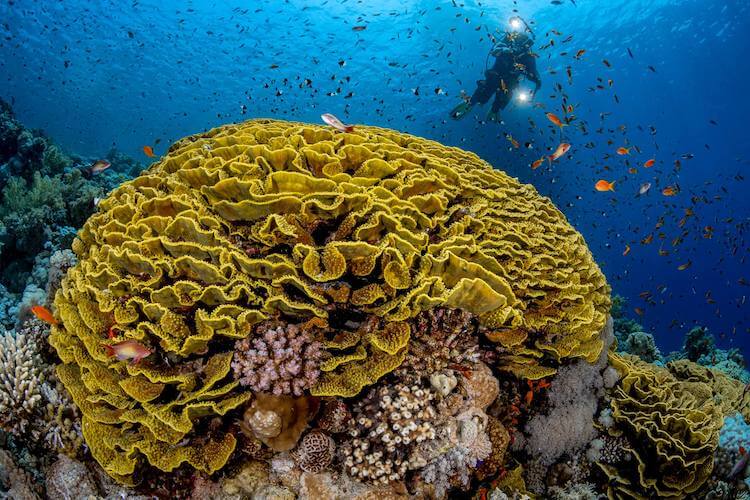Articles Written by Sophie Coxon
The Ripple Effect: Loss of Coral Reef Complexity exacerbates coastal erosion
Environment | Oceans, November 8th, 2023
Coral reefs provide many essential ecosystem services, including a vital defence along coastlines: protection from wave erosion. Loss of diversity in coral reefs causes a reduction in the structural complexity of the habitat, which enables higher wave erosion of tropical coastlines, threatening communities and terrestrial habitats.
Tiger sharks: a mapping method for the world’s largest seagrass bed
Environment | Oceans, May 9th, 2023
The Bahamas is home to the Earth’s largest seagrass ecosystem, a major blue carbon sink and important asset in climate change mitigation. However, the known extent of seagrass beds is limited, inhibiting effective conservation of these environments. Tagged tiger sharks are being used as a new data source for mapping due to their tight association with seagrass beds, which could lead the way for time- and cost-effective marine spatial data collection.
New study reveals alarming extinction risk for coral reef sharks and rays
Environment | Oceans, May 1st, 2023
A functional reef is more than just coral—it is the entire network of micro and macro flora and fauna living in inter-dependent synergy. Apex predators are essential to healthy reefs, but their role is often overlooked and over half are now endangered. Is this yet another sign of failing reefs?
Octopus farming: cold blooded (and cold-water) slaughter
Environment | Oceans, April 27th, 2023
A mysterious, fluid creature of curling arms and shifting colours, the octopus has long fascinated humans with its curious nature and unusual behaviour. Octopuses now face being intensively farmed, under unnatural and inhumane conditions, all in the name of economic gain.
Hungry as a bear: anthropogenic food impacts polar bear mortality
Environment | Tundras and Poles, April 3rd, 2023
Incidents of human-wildlife conflict are growing as global climate change alters and degrades habitats, forcing wild animals into closer contact with people. One of these animals is the polar bear, with individuals increasingly being observed entering settlements, attracted by anthropogenic food sources.
The surprising bounce-back of China’s leopards
Environment | Deserts, February 19th, 2023
Due to habitat degradation and disturbance, leopards have been a rare sight in the forests of northern China for the past few decades. However, recent population monitoring has shown that a local leopard population is recovering, forging new hope for other large carnivore recoveries in human-modified landscapes.
A bird's eye view on avian flu: concerns over migrating species
Sustainable Leaders | Europe, February 13th, 2023
Avian flu has swept through Europe this year, devastating seabird colonies and causing the death toll of wild bird populations to sky-rocket. With the onset of winter, concerns are rising over the impacts of migratory birds spreading the virus further afield.
The doors are closing on the Ethiopian wolf
Environment | Mountains, January 11th, 2023
The Ethiopian wolf is an endemic canid species found only in a few small pockets of the Ethiopian mountains. The species has been in rapid decline for decades, but new modelling projections have predicted almost definite extinction within the next two decades if climate change-induced threats are not abated.
The lion’s share: West African lions need larger habitat areas and greater protection
Environment | Grasslands, December 17th, 2022
The African savannah lion is a well-known and iconic symbol of the grasslands of Africa. However, the Panthera leo leo, a subspecies present in the west of the continent receives much less attention. With less than 500 individuals remaining, the West African lion is on the brink of dying out.
Bigger fish to fry: heat waves cook shellfish on Canada’s Pacific coast
Environment | Ocean, November 5th, 2022
The heat waves experienced across the North American continent in 2021 created a ‘heat dome’ which has killed over a billion marine organisms along the west coast of Canada. Experts warn that this is only the beginning of a series of major wildlife eliminations due to climate change, highlighting that conservation efforts are futile if warming is not significantly slowed.
The human footprint of overhunting in Cameroon's forests
Environment | Forests, October 14th, 2022
In the Dja Biosphere Reserve of Cameroon, human activity on the diversity and abundance of local native mammal species have had a significant impact. Targeted hunting of certain-sized mammals has reduced the area’s species richness, with smaller mammals dominating and upsetting the natural balance.
A rainforest no more: deforestation for cattle ranching is drying out the Amazon
Environment | Forests, September 10th, 2022
Once a luscious, vibrant green forest bursting with life is now a desolate grassland where dry brown grass wilts in the dusty heat. Rain is becoming rarer, and the formerly rich soils are parched. The steaming jungle is a thing of the past here.
Dugongs deemed functionally extinct in Chinese waters
Environment | Oceans, September 7th, 2022
Dugongs are gentle, herbivorous sea mammals related to the manatee and the elephant, similarly mild and serene mammals. Sadly, no sightings of dugongs have been recorded by scientists in Chinese waters since 2008, making the species the first declared functionally extinct mammal in the region.
Scottish wading birds: a misty future
Environment | Grasslands, September 5th, 2022
Scotland is known worldwide for its dramatic cliff-lined coast, ancient Caledonian pine forests and wild, windswept moorlands dotted with red deer and capercaillie. However, the country is also an important stop for many species of wading birds on their migration routes.
The elephant in the room: global warming-induced droughts threaten the future of Earth’s largest land mammal
Environment | Grasslands, August 20th, 2022
The African elephant is emblematic of the savannah and an animal many feel a strong admiration for. However, as global warming intensifies, recent droughts in East Africa are adding to pressures threatening the future of this iconic species.
Feeding turtles in Argostoli Bay could be changing their natural behaviour
Environment | Oceans, June 21st, 2022
Argostoli Bay is a picturesque bay and harbour on the western coast of Kefalonia, Greece. Tourists flock here to enjoy the crystal turquoise waters, sun-drenched beaches and Mediterranean food, but another attraction has become a highlight of the island: turtles. However, recent feeding habits are having damaging effects on the behaviour of this usually docile species.
The largest predation event of our time: the sinking of the blue whale
Environment | Oceans, May 31st, 2022
Blue whales are the largest animals on earth, which made them a magnet for whalers in historical times. Since the international whaling ban in 1986, previously-decimated blue whale populations have been steadily increasing, but they now face a new threat: orcas.
Protecting Tropical Coastlines: The Mangrove–Seagrass–Coral Trio
Environment | Ocean, May 19th, 2022
Tropical coastlines across the globe are protected by a dynamic relationship between three different ecosystemsㅡmangrove forests, seagrass beds and shallow-water coral reefs. Without these defences, shorelines are susceptible to coastal erosion, and biodiversity loss, and often face expensive reconstruction efforts. Ultimately, a holistic approach to conserving all three ecosystems yields the most long-lived results, both for people and coastlines.
The Decline of the Coconut Crab: protection methods used in the Seychelles could conserve the species
Environment | Oceans, May 12th, 2022
Coconut crabs have seen a huge decrease in population due to overharvesting and increasing demand from tourist restaurants. Strict regulations on fishing, pollution, disturbance and the implementation of marine protected areas could save the species if measures are taken soon.
Problems down under: The 6th mass bleaching event of The Great Barrier Reef is happening now
Environment | Oceans, April 3rd, 2022
Known as one of the Seven Natural Wonders Of the World, the Great Barrier Reef attracts over three million tourists to the Queensland coast every year. If the average global temperature warms by 2°C above current levels, it is predicted that global coral cover will decrease by 95%—a staggering figure which will have catastrophic impacts on ecological processes and the economies of many countries.
The importance of coral reef connectivity under climate change
Environment | Oceans, March 3rd, 2022
Evidence suggests that rising ocean temperatures are limiting the ability of coral larvae to migrate between reefs, with the associated biodiversity losses reducing coral resilience to disease, overfishing, and the impacts of climate change.
Acoustic enrichment is aiding coral reef recovery
Environment | Oceans, February 23rd, 2022
Coral reefs are often referred to as the ‘rainforests of the ocean’ due to the richness of biodiversity they harbour and the vital role they play in the functioning of marine ecosystems. Globally, reefs support over 500 million people through tourism and fishing, providing a livelihood and an essential source of protein, whilst also producing multiple medicinal compounds used to treat cancer, HIV, and cardiovascular diseases.

